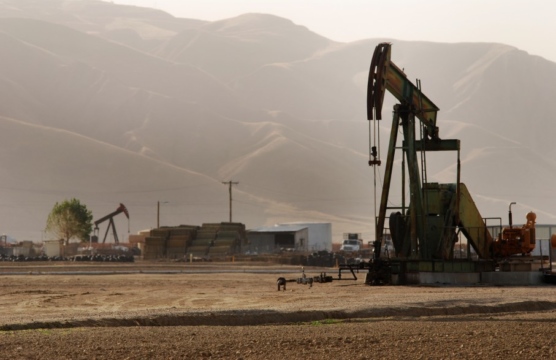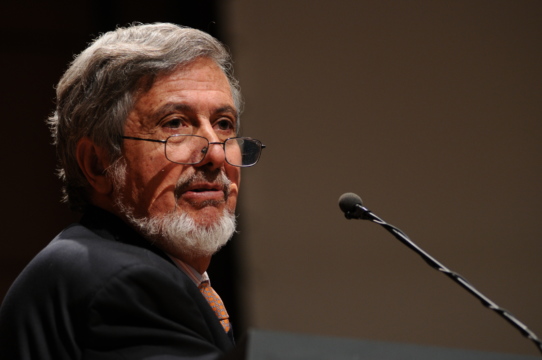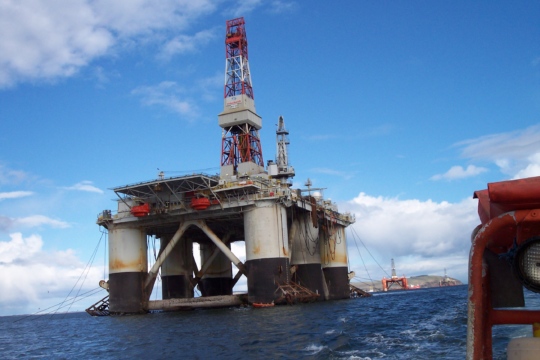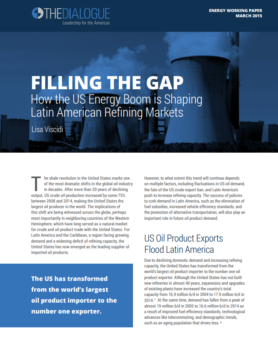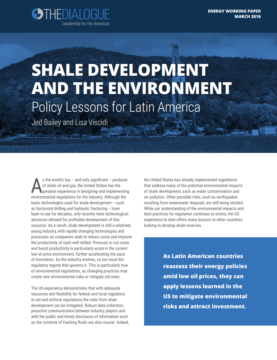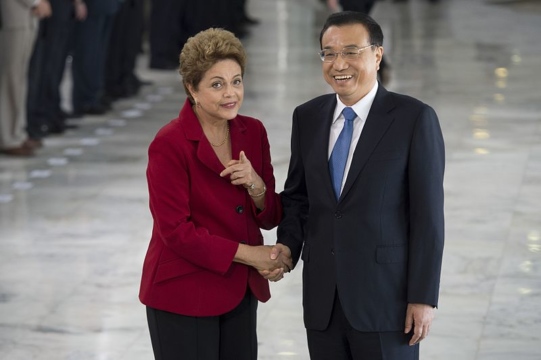
China’s Strategy in Brazil & the Southern Cone
What does China stand to gain from investing in Latin America’s energy projects? Where is China looking next in the region?
What does China stand to gain from investing in Latin America’s energy projects? Where is China looking next in the region?
Electric vehicles are a critical part of a clean transport agenda, but strong policy incentives are needed to promote widespread EV adoption in Latin America.
Conflicts over energy and natural resources are leading to social turmoil and posing serious challenges for investment projects all over Latin America.
Facing growing competition for a shrinking US market, Latin American crude oil producers are being forced to seek new export markets.
Given their close proximity to the United States, LAC countries are well-positioned to capitalize on the surplus of US gas exports and current buyer’s market.
In the wake of the COP21 global climate talks, governments must shift attention to how they will actually follow through on the commitments made in Paris. One concept is central to achieving that goal – innovation.
Think-tank Inter-American Dialogue recently held a closed-door event which brought together Colombia’s new mines and energy minister, Tomás González, with CEOs, industry association heads and regulators.
In the first of a two-part series, Inter-American Dialogue’s energy, climate change and extractive industries program director Lisa Viscidi talks to BNamericas about how the Colombian government is looking to increase oil reserves and maintain competitiveness as Mexico opens its hydrocarbons market.
President-elect Donald Trump has vowed to overhaul US energy and foreign policy in ways that could have important impacts on energy relations with Latin America and the Caribbean.
With the recent decline in commodity prices, why have some countries have fared better than others?
Though the COP21 negotiations promise to be complex, they also present an opportunity for the region to address existing vulnerabilities.
The collapse in global oil prices has led to a steep decline in investment in Colombia’s hydrocarbons sector and reduced the value of its oil exports, depleting a key source of government revenue.
The election of President Mauricio Macri may signal the start of a new era in Argentine energy policy and cooperation with the United States, but the new government still faces challenges to increasing oil and gas production and erasing energy subsidies.
The surge in unconventional oil and gas production in North America has dramatically shifted energy markets in the Americas.
As Latin American countries reassess their energy policies in light of lower oil prices, there is an opportunity to apply lessons learned from the US experience to enact regulations that mitigate environmental risks, strengthen public support, and attract investment.
Peace in Colombia promises to bring many environmental benefits to the country, but also poses environmental risks .
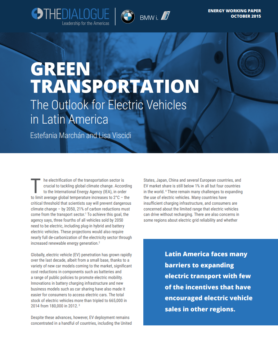
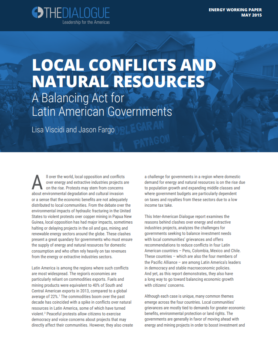
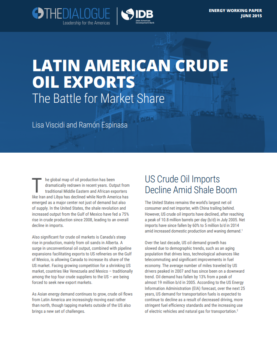
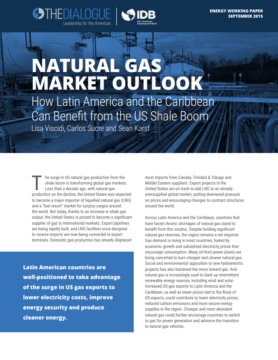
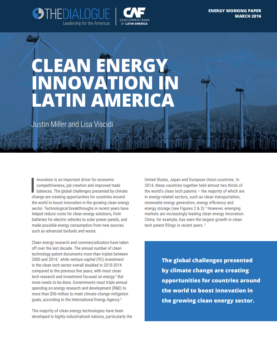 Video
Video
